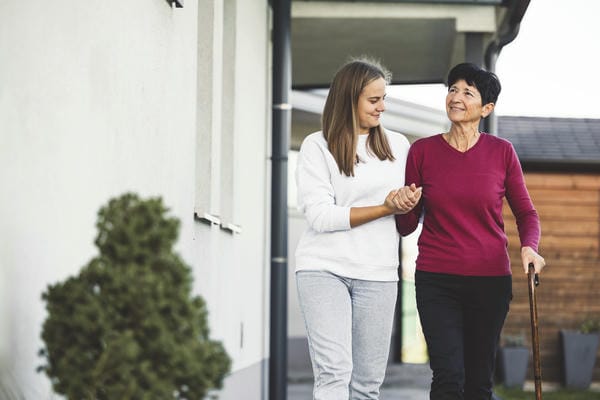Imagine an elderly woman named Margaret, living alone in her small, quiet house. Her days blend into one another, with little human interaction beyond occasional phone calls from her children. Margaret’s story is not uncommon, as many older adults face social isolation, which can significantly impact their mental and physical well-being. Family involvement plays a crucial role in preventing social isolation among the elderly, providing essential support that enhances their overall health. This blog explores the importance of family support in combating social isolation and offers practical tips for caregivers to help strengthen these vital connections.
The Impact of Social Isolation on the Elderly
Social isolation among older adults can lead to severe consequences, including depression, anxiety, and cognitive decline. Studies have shown that isolated seniors are more likely to experience chronic health conditions such as heart disease and hypertension. The lack of regular social interaction can also affect their immune system, making them more susceptible to illnesses.
Mental Health
Isolation can severely affect an elderly person’s mental health. Without regular social interactions, they may feel lonely and disconnected, leading to depression and anxiety. Family support can help mitigate these feelings by providing emotional and social engagement, making the elderly feel valued and loved.
Physical Health
Physically, social isolation can lead to a sedentary lifestyle, which increases the risk of chronic diseases. Engaging in social activities often involves physical movement, whether it’s a walk in the park or participating in a community event. Family members can encourage and participate in these activities, promoting a healthier lifestyle for their elderly loved ones.
The Role of Family in Preventing Social Isolation
Family support is integral to the well-being of older adults. Regular interaction with family members can significantly reduce feelings of loneliness and isolation. Here are several ways families can help prevent social isolation among the elderly:
Frequent Communication
Regular phone calls, video chats, or visits can make a significant difference in an elderly person’s life. These interactions provide emotional support and help them feel connected to their loved ones. Even short, frequent check-ins can alleviate feelings of loneliness.
Inclusive Activities
Involving elderly family members in gatherings, celebrations, and everyday activities fosters a sense of belonging. Simple actions like inviting them for dinner, taking them to family outings, or including them in holiday celebrations can strengthen family bonds and provide much-needed social interaction.
Encouraging Hobbies and Interests
Supporting hobbies and interests is another way to keep older adults engaged. Families can encourage their elderly loved ones to pursue their interests, whether it’s gardening, painting, or reading. Joining them in these activities can enhance their enjoyment and provide opportunities for meaningful interaction.
Enhancing Mental Health Through Family Support
Mental health is closely linked to social health. Family support can play a significant role in enhancing the mental well-being of older adults. Here are some strategies to consider:
Emotional Support
Being there for emotional support is crucial. Listening to their concerns, sharing memories, and providing reassurance can help seniors feel understood and valued. Families should encourage open communication, allowing their elderly loved ones to express their feelings without judgment.
Cognitive Engagement
Engaging seniors in mentally stimulating activities can help maintain cognitive function. Activities such as puzzles, games, and discussions about current events can keep their minds active. Families can participate in these activities, creating opportunities for bonding and mental stimulation.
Professional Help
In some cases, professional help may be necessary. Families should be aware of signs of depression or anxiety and seek professional assistance when needed. Counseling or therapy can provide additional support and strategies for coping with emotional challenges.
The Caregiver’s Role in Strengthening Family Connections
Caregivers play a vital role in facilitating family involvement and preventing social isolation. Here are some points on how caregivers can help:
Coordinating Visits and Communication
Caregivers can help schedule regular visits or calls between the elderly and their family members. They can also assist with setting up and using technology for video chats, ensuring that seniors stay connected with their loved ones.
Organizing Social Activities
Caregivers can organize and accompany seniors to social events, community activities, or family gatherings. They can also encourage participation in clubs or groups that align with the senior’s interests, promoting social engagement.
Providing Emotional Support
Beyond physical care, caregivers can offer emotional support by being attentive and compassionate. They can facilitate conversations, listen to concerns, and provide companionship, reducing feelings of loneliness.
Encouraging Independence
Encouraging independence is crucial for the elderly’s self-esteem. Caregivers can support seniors in maintaining their daily routines and hobbies, fostering a sense of autonomy and purpose.
Conclusion
Family support is essential in preventing social isolation among the elderly, significantly enhancing their mental health and overall well-being. Regular communication, inclusive activities, and emotional support from family members can make a world of difference in an older adult’s life. Caregivers, too, play a pivotal role in facilitating these connections and ensuring that seniors remain socially engaged. By working together, families and caregivers can create a supportive environment that promotes the health and happiness of their elderly loved ones. Remember, every effort to connect and engage can profoundly impact the well-being of our aging population.








